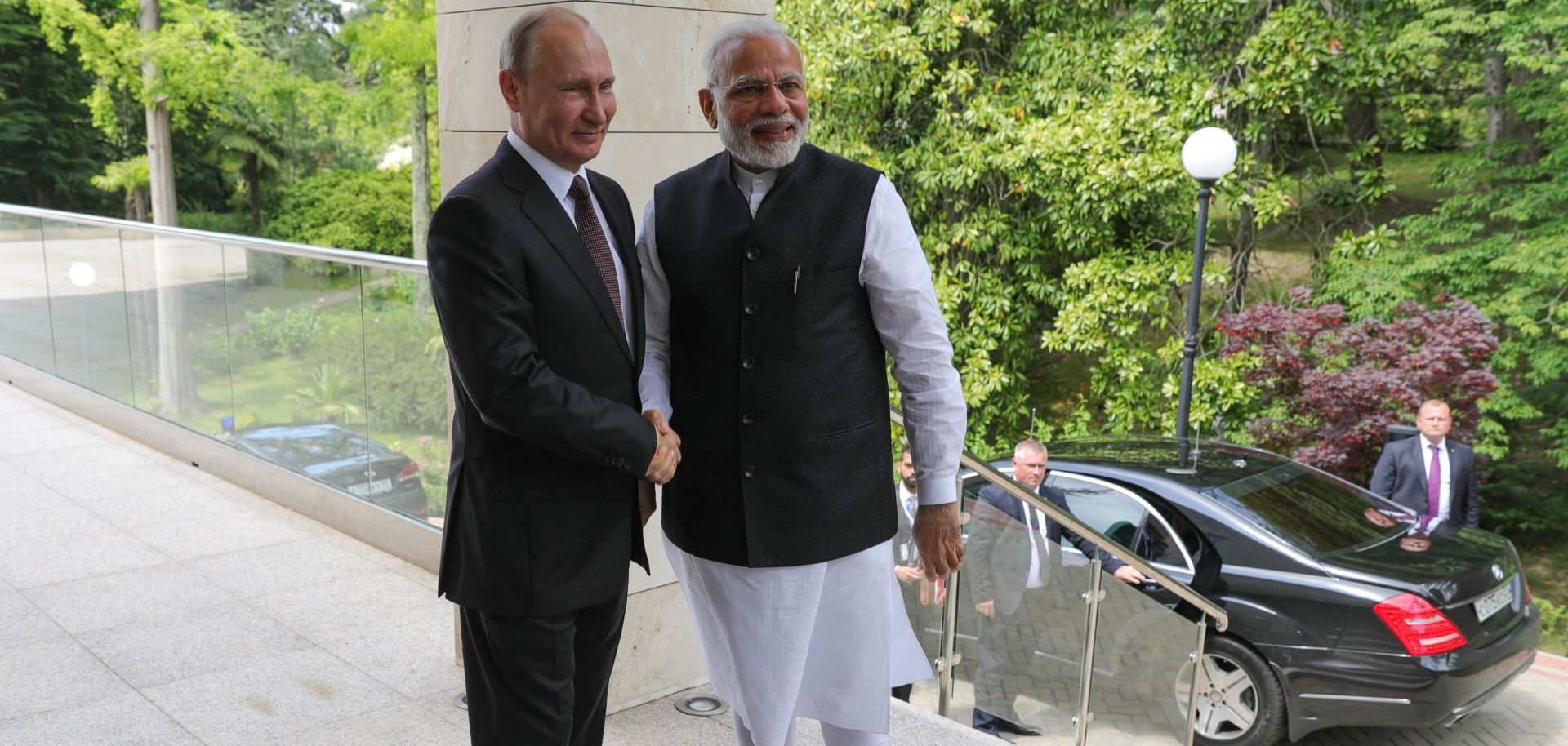ASSESSMENTS
India Walks the Tightrope Between the U.S. and Russia
Jun 8, 2018 | 09:00 GMT

Russian President Vladimir Putin (left) welcomes Indian Prime Minister Narendra Modi during a meeting in Sochi on May 21. Washington would like New Delhi to scale back its Russian arms purchases, but it is unlikely to push India too much due to the latter's strategic importance against China.
(MIKHAIL KLIMENTYEV/AFP/Getty Images)
Highlights
- India will seek to balance its relations with great powers to ensure its primacy in South Asia and fulfill its doctrine of strategic autonomy.
- Because of India's deep reliance on Russian arms and unwillingness to allow others to dictate its relationships, it will probably continue to purchase arms from Moscow, albeit at a slower rate.
- If Washington slows the sale of weapons systems such as the the Predator drone to New Delhi, the latter could retaliate by dragging its heels on the signing of defense pacts.
Subscribe Now
SubscribeAlready have an account?
